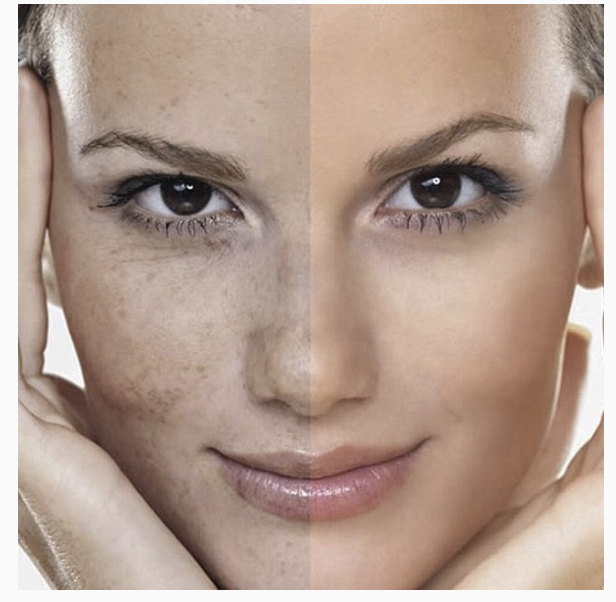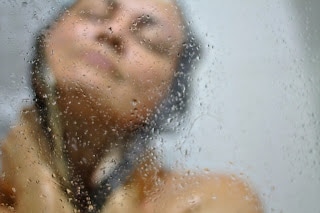Pure Indulgence Beauty Therapy
 During summer we come alive. Longer daylight hours and sunny warm weather is the perfect opportunity to have a picnic in the park, a stroll on the beach, potter around in the garden, play sports and go for a swim. The warmer temperatures and sun exposure can lead to oily shiny skin, sun damage, pigmentation, couperose and premature aging. Here are some tips for keeping your skin fresh and glowing during summer and protect your skin from long-term damage. MANAGING OILY SKIN Warmer temperatures and sunlight triggers skin’s natural production of oil. The oil is beneficial to help protect the skin from losing too much moisture. In New Zealand we have the extremes in temperature and strong sun which can make the skin look shiny and could lead to skin clogging, blackheads and breakouts. The first step to managing an oily skin is to balance it perfectly without stripping. Try a lighter milk cleanser for a perfectly cleansed skin. Avoid foamy gel cleansers which contain detergents that strip your skin and can trigger more oil production to make your skin oilier. To keep your skin hydrated and shine free all day long try a mattifying moisturizer. Look for a fluid consistency with added mattifying powders to give your skin a very soft, powdery and matte finish to the skin. These clever moisturizers hydrate the skin where needed and mattify the zones which are too shiny. MANAGING RED SKIN During hotter days, the skin's capillaries dilate to allow the body to cool itself down. This is why the skin turns red when it's hot. Short-term it’s not a problem, as the body cools down the capillaries go back to their normal size. Long-term exposure to the UV light however can damage the collagen and elastin in the capillary wall, causing permanent dilated capillaries called couperose. The first step to prevent this problem is to protect the skin from UV damage where possible. Wear a hat, and a sunscreen and limit the direct exposure to sun. If you find your skin tends to redden in summer or you have visible capillaries, try a serum and a moisturiser which soothes and protects delicate skin. PROTECTING FROM FREE RADICAL DAMAGE All the exposure to sun during summer can cause free radical damage in the skin. Vitamin C and vitamin A are powerful antioxidants which should be included in everybody's skin care during the summer periods and where sun damage, premature aging and pigmentation are evident. During the day, under your moisturizer try a good vitamin C serum. Look for a quality professional strength serum that contains stabilized vitamin C to even the skin tone and reduce the appearance of brown spots. Vitamin C also important in the production of collagen and elastin so will help a sun damaged and ageing skin. At night try a Retinol serum or cream. Look for a cream which is rich in vitamins and minerals and Retinol to improve skin elasticity, restore radiance, smooth superficial imperfections and reduce the appearance of wrinkles and age spots. THE ESSENTIALS OF SUNSCREEN With all that you do to look after your skin, if you do not protect it from the sun with a good sunscreen you will have that much more to cope with in the years to come. Look for a professional formula based on physical reflective agents such as zinc oxide and titanium dioxide as the main ingredients and boosted with antioxidants such as vitamin E or aloe vera for maximum protection. During summer your skin has very different needs than during the cooler periods so it is important to have your skin professionally analysed to determine how your skin is coping and what needs to be managed better for a flawless, bright skin. To discover the best natural solution for your skincare needs, book in a professional consultation with your skincare expert. Thanks to Jana Elston for this article  Protecting the skin from the sun should be a major concern for clients of all ages. As Skin care professionals, we need to educate you on what you can do to prevent damage before it is too late. 1. Preventing sun damage is much easier than restoring wrinkles. It is always easier to prevent than it is to reverse. Sun damage can cause wrinkles, discolored skin, and more serious health consequences AND in some cases, once the damage is done, there is no going back. 2. Avoid deep exfoliating procedures and chemical peels during the summer. These treatments make the skin more photosensitive by removing layers of the epidermis (the top layer of your skin) that can act as a protective shell. The same is true for skin care products formulated with retinol, alpha hydroxyl acids, and other lightening agents. Products containing these ingredients are best used in the evening. 3. Protect your skin with broad-spectrum sunscreen. The SPF number on the bottle indicates how much safe, sun-exposure time can be extended. Determine the time it takes for their unprotected skin to start turning red on a sunny day. Safe, sun-exposure time depends on genetic disposition, location, and the time of day (the sun is most active between 11 a.m. and 4 p.m.). For example, if your skin starts to change color after 10 minutes, by applying sunscreen with SPF 30, your safe, sun-exposure time will be extended 30 times. After 300 minutes, you will need to reapply sunscreen. 4. Location determines the strength of the ultraviolet rays that penetrate the skin. If you are in the water or the snow, your safe, sun-exposure time diminishes significantly, as ultraviolet rays are reflected off the surface of snow or water. 5. The sun is most active at the equator. When traveling north, more protection is needed. Along with sunscreen, wear protective hats and clothing to avoid serious sun damage. 6. Be very careful when at higher elevations. The earth’s atmosphere helps filter ultraviolet rays, so if clients are at higher elevations, like the mountains, they are less protected. 7. Zinc oxide is a great active ingredient for sunscreens. It provides broad-spectrum protection by physically reflecting ultraviolet rays. It has been safely used for generations and is preferred over nanoparticles, which are not as effective. 8. Food can affect how skin responds to the sun. Processed foods with trans fats can contribute to wrinkles, skin discolorations, and other more serious conditions. Colorful, organic fruits and vegetables filled with antioxidants, like tomatoes, will support the skin during sun exposure. 9. Photosensitivity is a side effect of some medications like Accutane, Benadryl, and tetracycline. If clients have to take medical drugs, have them check the list of side effects to determine if they need to take extra precautions in the sun. 10. Elevated estrogen levels and other hormonal changes often result in heightened photosensitivity. This photosensitivity can lead to hyperpigmentation. For example, melasma, the mask of pregnancy, presents as skin discoloration. Women who are taking birth control pills or who are on hormone replacement drugs may also experience similar side effects, unless they take extra measures to protect themselves from the sun. Thanks to Elina Fedotova for inspiration for this blog. some suggestions and the steps you need to take will depend on your skin. Some may need to do a complete revision of their skin care plan, other may just need to tweak it by adding or swap some skin care product for more winter friendly formulations. Here are some tips: 1 . Switch to a milky or creamy cleanser - if you have oily or combination skin it may love a gel cleanser during warm and humid days, but during the cold and dry season a gentle hydrating and moisturising cleanser may all you skin need to make it feel more comfortable. One way to tell is if your skin is feeling tight or sensitized after cleansing it's time to switch it up. Incorrect cleansing will prevent effective penetration of serums or treatments creams, so make sure your skin is well hydrated.
2. If you are already using a milky cleanser and a good moisturising cream, sometimes all the skin needs is to give it a boost with a hydrating serum. Serums are more powerful than moisturisers and penetrate deeper, so if your skin is deeply dehydrated you may need to get the big guns out. Serums are very useful to help the skin cope with seasonal changes to help the skin adjust. If you are sick, on medication, not sleeping well, smoking, drinking more than 2 cups of tea / coffee a day you may need a serum to help your skin get back into shape. 3. In winter a dry skin suffers even more because dry skins are low in essential fatty acids. This means they tend to lose moisture from their skin through evaporation even faster. We call this impaired barrier. Your skin is literally more porous and not only does it lose moisture faster, irritants can penetrate into the skin and cause sensitivities. To keep your barrier intact and strong, the spaces between the skin cells need to have a good balance of ceramides, cholesterol and essential fatty acids (or omegas 3,6,9). If your skin is very dry and flaking, look for moisturisers rich in omegas 3,6,9. 4. Exfoliate your skin at least once a week. During winter, the skin cellular turnover slows right down to allow the skin to build up a thicker dead cell layer to protect the skin from harsh weather. The trouble is, thicker skin and dead cell build up not only looks sallow, dull and crepey from the surface, making pores look larger, wrinkles deeper and pigmentation darker, but it acts as a barrier to serums and moisturisers. Winter season is the perfect opportunity to undergo a course of peels combined with hydrating facials. Choose AHA or enzyme peels over harsh scrubs which can aggravate already sensitized capillaries. 5. During winter I like to invest in a thirst quenching creamy or gel mask to give the skin and instant glow. I love using masks as they are the one thing you can do that will give you INSTANT results. This is why beauty therapists ALWAYS finish a facial with a mask - for the instant results. A new generation of masks are designed to leave on overnight called sleeping masks. They give life back to the skin overnight and when you wake up in the morning your skin looks like you had a facial. These masks are particularly hydrating and nourishing so terrific to use during winter. 6. I have been seeing so many people with chapped lips. Make sure you exfoliate, moisturise and mask you lips too and for soft kissable lips switch from a matt lipstick to a juicy hydrating formula, lip gloss or a plumping lip balm. 7. Your hands can really suffer in winter because they are exposed to frequent washing with soap and exposed to the environment. Time to invest in a softening and moisturising hand cream. Make sure you massage it well into the cuticles and if going outdoors pop your hand cream on just before you put your gloves on. The warmth of the gloves with help to infuse the cream into the skin and protect your hands. A big thanks to Jana Elston for this post. Your skin cells take in nutrients from the blood stream and the surface cells from the serums and treatment creams you have applied before sleep, then excrete toxins. Some of these toxins are collected by the lymphatic system (that's why drinking water before bed and on rising is so important) then processed through the liver, kidneys, and lungs (which is partly why you have the morning breath). Toxins are excreted to the surface of the skin overnight via the sweat ducts. One of these waste by-products is urea, the same substance in urine. So literally your skin excretes waste on your face overnight, so that's WHY you need to use a cleanser in the morning! Just splashing water will not do it.
Leaving sweat, urea, skins oil on the skin may cause breakouts, congestion and free radical damage which accelerates aging. You don't want to be walking around with toxins, waste products and urea on your face all day, do you? So after you brush you teeth use a lovely refreshing cleanser and start the day fresh and clean! Your skin will thank you for it! Cleansing your skin the morning not only feels great and washes away all the debris collected on the skin from the night before, after you have finished your morning routine - Cleanse, Tone, Moisturise and Sunscreen, this also helps your foundation to sit on your skin leaving a much smoother application for the day ahead! Thanks to Jana Elston for this post. |
Categories
All
Archives
September 2019
|
Opening Hours:Monday: Closed
Tuesday: 10am - 7pm Wednesday: 10am - 5pm Thursday: 10am - 8pm Friday: 10am - 5pm Saturday: 10am - 2.30pm Sunday: Closed |
Text:Address:168 Kendal Ave
Burnside Christchurch |
Email: |
Pure Indulgence Beauty Therapy operates by appointment only.
,Since 2010 Pure Indulgence has been emphasising self love and care and building a community of like minded people. We pride ourelves on our educated and professional therapists, whilst also ensuring your experience is relaxing. We are an advanced skin, IPL and beauty clinic situated in Burnside, Christchurch. We comibine relaxation with luxurious skincare and modern technology to bring you treatments that work.
©2023 Pure Indulgence Beauty Therapy Nz Ltd. All Rights Reserved


